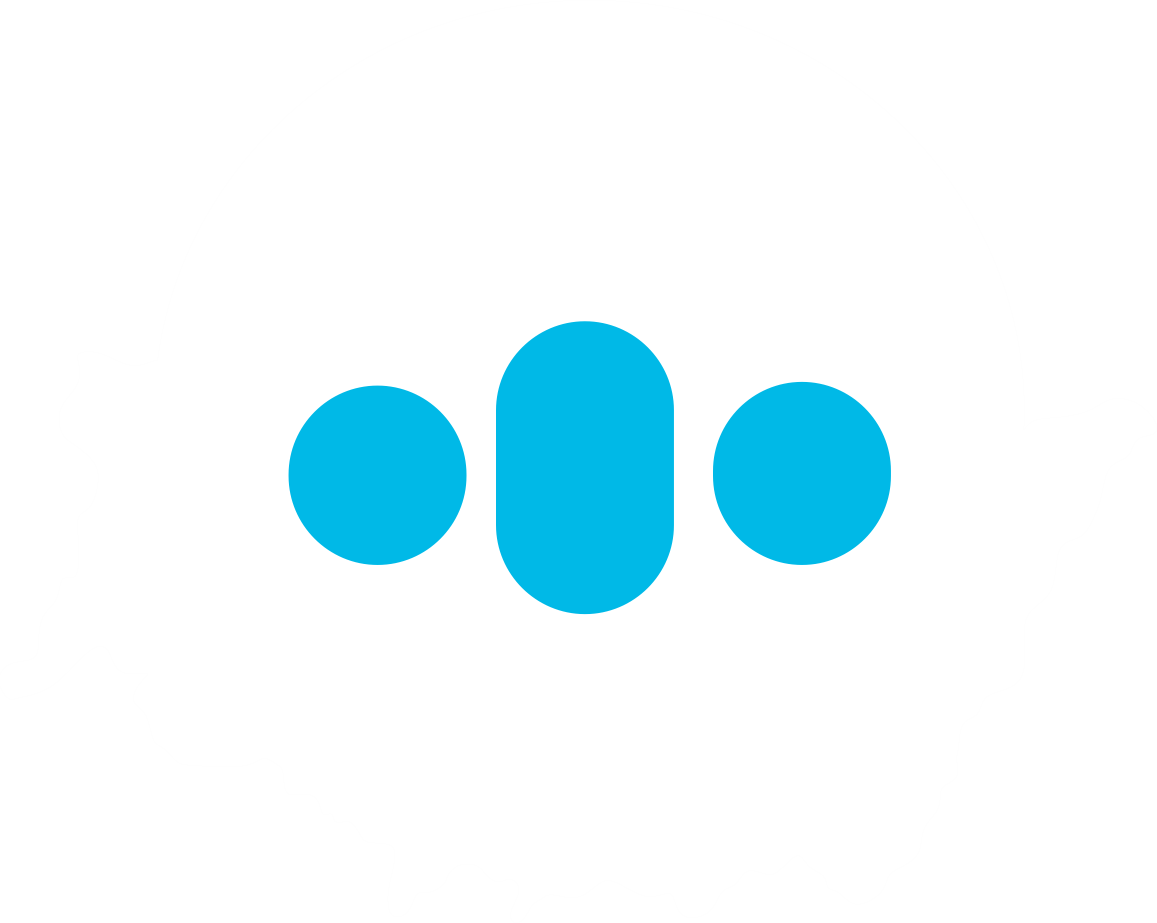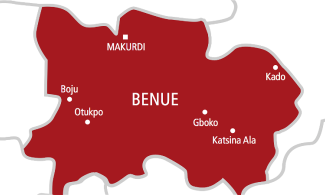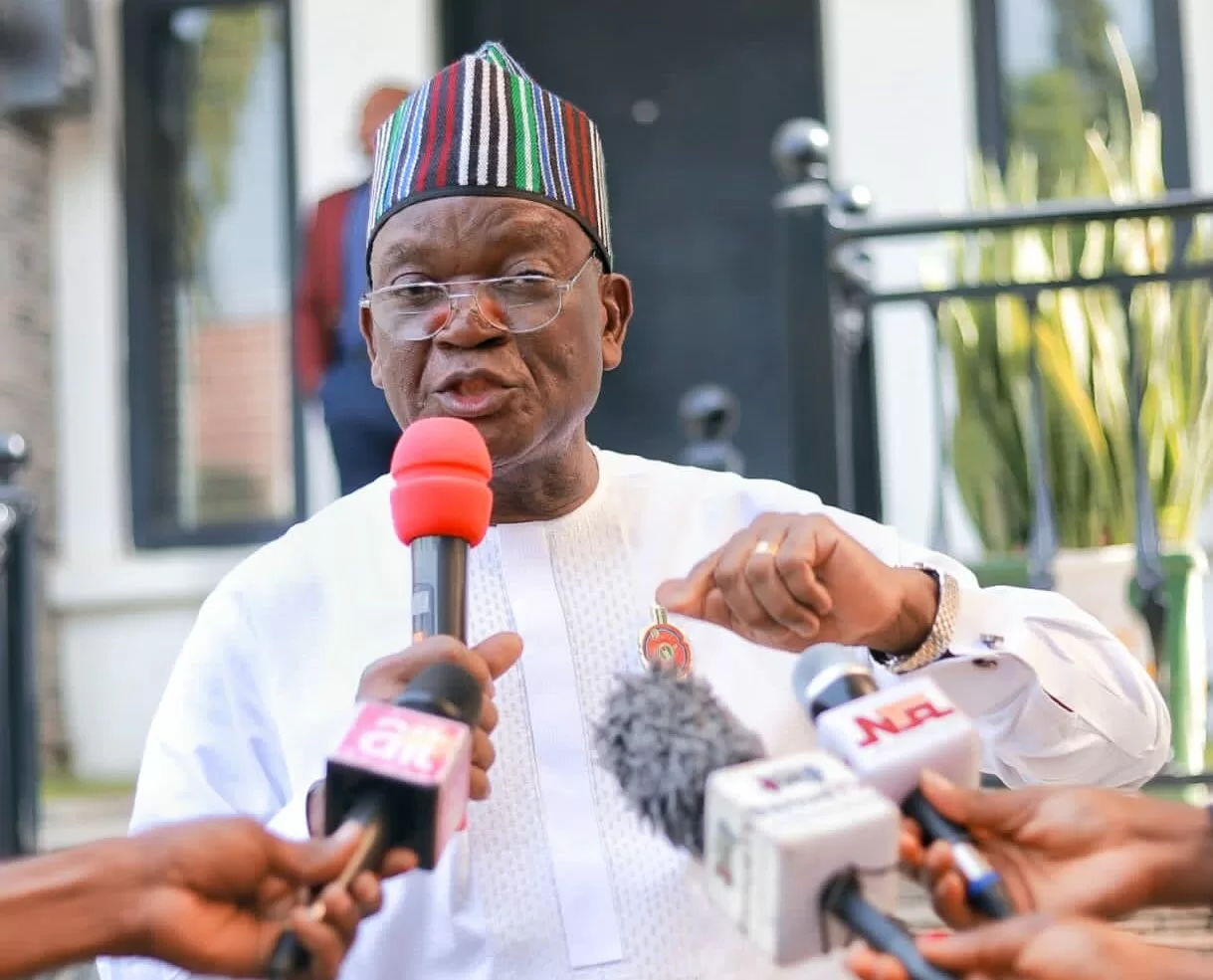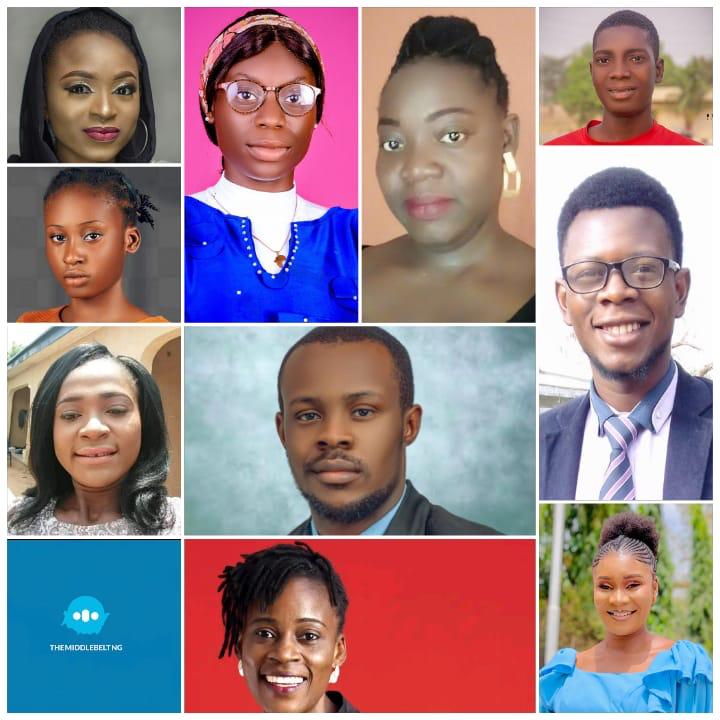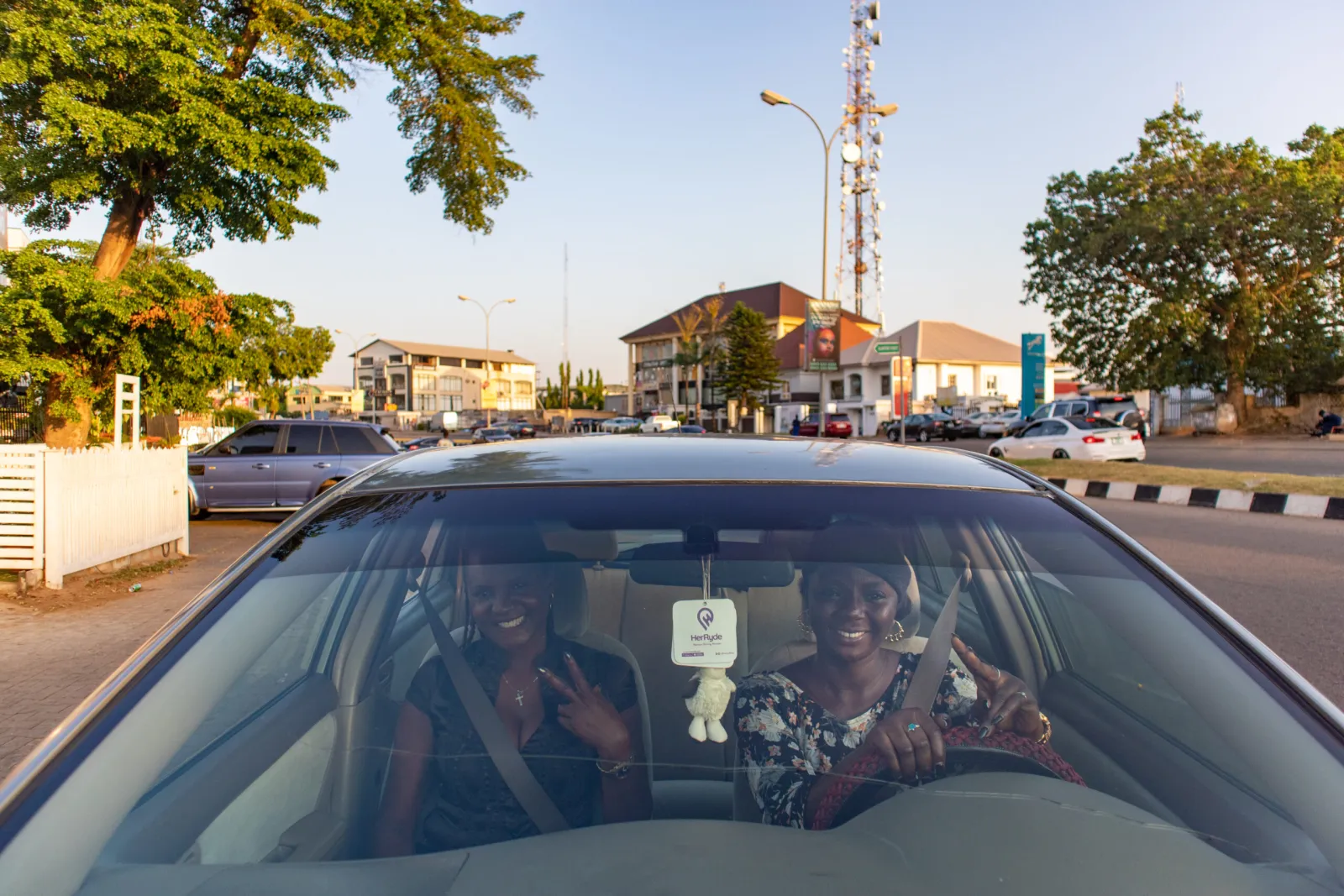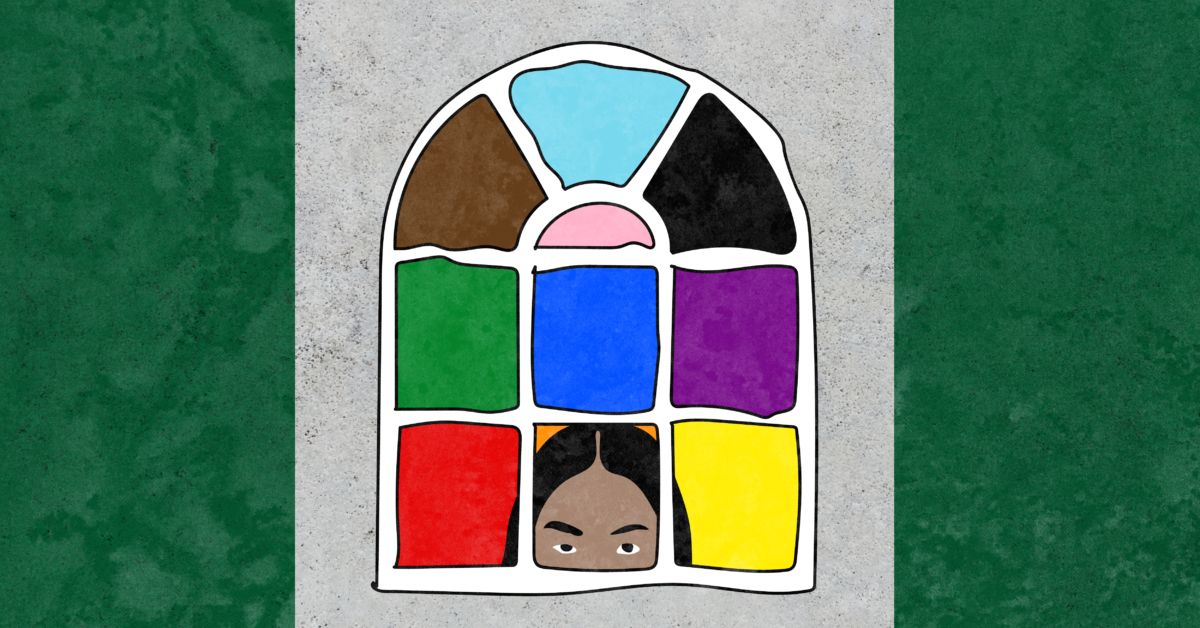According to reports, the assailants opened fire erratically into the air at around 11:30 p.m. and abducted a number of people who were leaving the city at the time.
Others
The road trip, according to Nyor, is a badge of pride that will dispel the rumor spread by the “forces of darkness” that Tinubu won’t be inaugurated.
A Facebook user, Faith Ote Uchara, who identified herself as an #IgedeFemalewriter, said via a Facebook post that the Igede Community has been without..
The governor stated that the action was taken to permit all herdsmen with animals in the state to depart.
The Independent National Electoral Commission (INEC) said that 87 million Permanent Voters Cards (PVCs) have been collected by Nigerians in preparation for the February 25th Presidential and National Assembly elections. The commission also disclosed that about 6 million PVCs are yet to be collected. Although the numbers of PVCs holders and vote-ready Nigerians might have increased compared with 2019 when only 72 Million PVCs were collected, they are some indices that may slur political participation across the country. Tarza Joel, 47, of Apir Ugondo of Makurdi Local Government of Benue is one of the over 2 million Benue citizens who have collected their PVCs and are ready to vote in the coming elections, However, the chances that Tarza would vote are minimal. Tarza Joel is a father of three with disabilities who earns a living through shoemaking. He lamented how the cash swap has been unfriendly to him in the middle of fuel scarcity, which is a factor that could put him out of his polling unit. “Accessing cash over the past five days has been a daunting task. Just yesterday, I went to the market to purchase foodstuffs. Sadly, I returned with nothing because the transfer I initiated was not successful. Even when I asked to purchase it in advance, it was rejected.” He lamented. For someone like Tarza moving from place to place on election day is just as vital as casting a ballot, but the chances are limited because of the high expense of transportation and the lack of physical cash. Like Tarza, Paul Agana, 37, an entrepreneur from Oju Local Government who resides in Makurdi has been unable to access cash despite waiting at the banks for days Paul accused the government and its policy implementation of disenfranchising him. “At this point, I am right to say that the government has disenfranchised me of my civic right to vote in an election.” He said. He continued, “I should have been in my hometown in Oju LG, getting ready to cast my vote. But here am I, trapped in the middle of nowhere when others are deciding the fate of the country. Security Concerns Achin Mathias 28, from Yalewata in Guma Local said that his greatest fear has been the security of the electorate before, during, and after the elections in his community “Although the past two weeks have been relatively peaceful with the presence of security personnels, Going for elections tomorrow, the lives of the electorate should matter the most. He suggests that more security measures like tech based security apparatus would boost the “confidence level of the electorates.” Achin told TheMiddleBelt Reporters. He continued, “For me, I will be going to cast my vote but I will be doing it with fear because of apprehension of attack as it has happened before elections,” he said The Nigerian Police force through the Inspector General of Police (IGP) Usman Baba has revealed that a total of 425,105 personnels will be deployed nationwide for the election The Nigerian Police, the Nigeria Security and Civil Defence Corps (NSCDC), the Federal Road Safety Commission (FRSC), the National Drug Law Enforcement Agency (NDLEA), the Nigerian Correctional Service, the Economic and Financial Crimes Commission (EFCC), and the Nigeria Immigration Service are among the organizations from which personnels are drawn, according to him The police revealed that there are 310,973 police officers, 51,000 members of the Nigerian Security and Civil Defense, 21,000 members of the Federal Road Safety Corps, 11,336 members of the Nigerian Correctional Service, 9,447 members of the National Drug Law Enforcement Agency, 350 members of the Economic and Financial Crimes Commission, and 21,000 members of the Nigeria Immigration
Engr. Ogbolo Aaron Eje, an Abuja-based Civil and Structural Engineer and the CEO of Jebstructs Nigeria Limited and Skyprime Detail Engineering Limited gives his 108 yrs old father a befitting burial for a life well spent. Pa Ogbolo Daniel Onah lived between 1914-2022 and was known as a successful farmer, a community leader, and a philanthropist whose life had impacted so many lives both living and dead. At Pa Ogbolo’s residence at Okpenehi-Ada-Iyeche of Oju LGA of Benue State between 28th and 29th December 2022, were dignitaries and mourners cutting across traditional leaders, both serving and non serving political office holders, business associates of his children, religious and community leaders recounting memories. PA. Ogbolo’s biography Papa Ogbolo Daniel was born in 1914 to the family of late Chief Onah Aju popularly known as Obachi Onyukwu and Ohiama Ogigbo in Oyidoma ( Anchimeba) of Okpenehi Ada-Iyeche, Igede Oju LGA Benue State Nigeria. He was the 5th child in a polygamous family of 18 children. Late Pa Ogbolo had no privilege of formal western education standard but he passed through a system of education called “organiser” he was later withdrawn by his late father whose ideology largely favoured farming as a then noble occupation upon his relocation from Oyinyi to Okpenehi, Iyeche for farming activities. His late father, Chief Onah Aju became a councillor and brought the primary school to Okpenehi which gave him another chance at school but was withdrawn again by his father who bent on having him farming with him. In spite of this, Papa Ogbolo could read and write until his departure to a great beyond. Late Pa Ogbolo’s youthful and career life was admired by many who queued and mentored by him. He was a hardworking and famous farmer, community leader, and Philanthropist whose influence and fame of farming spanned across the entire state of Benue, and for many decades was a successful farmer. Because of his large-scale farming, he travelled yearly to Ekimoha community in Eza Local Government Area of Ebonyi State to hire workers/labourers in their hundreds. His farming specialty ranges from the cultivation and planting of yam, cassava, rice, and palm oil to other farm products. He was one of the most prominent farmers across Igede land and parts of Nigeria such as Enugu and Ebonyi States. As a leader of the Okpenehi community and part of his civil life, he led resounding developmental projects that moved the community forward; he was responsible for community health care and also fought and brought LGEA primary school and eventual Universal Basic Education (UBE) followed by series of his initiatives that led to the recognition of Okpenehi community for development projects from Local government authority. His encouragement led to the building of some churches within the community which further brought development to the Okpenehi community and its people. As an industrious and disciplined man, he encouraged his children to embrace education, hard work, persistence, and all his virtues and integrity which formed the basis of his ideology and philosophy of life. He has both directly and indirectly motivated all his children to have a post-secondary education; vast numbers are graduates while the rest are accomplished artisans. He has also imbued the same fire in those who came in direct contact with him; nephews, nieces, and brothers to encourage education and live a life worthy of emulation. He is survived by three wives, and 22 children among whom is Engr. Ogbolo Aaron Eje, 61 grandchildren, and 9 great-grandchildren.
“The phenomenon of “press release journalism” in the Middle belt region has overtime, hindered the uncovering of valuable facts and realities of critical sectors in the area. thereby limiting the effect of the people’s will – a menace he frequently said must be halted.” By: Bryan Ula. A bid to respond to the clamors for quality reportage in the middle belt region of Nigeria births a sustainable initiative and regional news media, “Middlebelt Reporters.” The online media platform on Friday 9th December 2022, commenced a 3Days compulsory virtual Capacity Training for 28 selected early career journalists on high-quality reportage focusing on investigative reporting and human interest stories among others emanating from the region. North Central Nigeria also regarded as a middle-belt region consists of six states Benue, Kogi, Kwara, Nasarawa, Niger, Plateau, and the Federal Capital Territory, FCT Abuja. Speaking during the training, the host and founding partner of Middle belt reporters, Jairus Awo, emphasized the essence of its existence noting that the phenomenon of “press release journalism” in the Middle belt region has overtime, hindered the uncovering of valuable facts and realities of critical sectors in the area. thereby limiting the effect of the people’s will – a menace he frequently said must be halted. According to Mr. Jairus, the dilapidating realities of the middle-belt states in Nigeria ought to be exposed in order to attract relevant interventions hence, the need to give the voiceless (people) a voice to foster positive change and development. Mr. Jairus further added that the era of press release journalists has lasted long enough and is due for extinction as early career journalists must endeavor to expose themselves to the current realities of the evolving nature of the journalistic profession while upholding ethical standards and competing highly with reporters/journalist from other regions who are obviously setting the pace already. This he said can only be achieved when journalists within the region move from their comfort zones to ask propelling questions, find relevant answers to these questions through research and meaningful investigations, and expose those realities to the public through their writings. He assured that Middle Belt reporters would serve as a home and platform for all volunteers to learn and express themselves while contributing their quota to developing their respective communities through fact-based reporting. A facilitator at the online capacity training, Nanji Nangdang a freelance journalist and a fact checker lectured on the holistic approaches employed in carrying out investigations and reporting facts. Nanji further encouraged the story-telling approach of news reporting for early career journalists to help give meaning and a seamless flow of ideas to their reportage. Also, James Ojo, a reporter with TheCable newspaper challenged participants to dare to grow from conventional to more sophisticated styles and means of news gathering and reporting by writing compelling stories on valuable or high-interest topics with accurate data and analysis which she believes will serve as a springboard for their respective careers. Other facilitators at the online training were the Middlebelt Reporters’ Associate Editor, Linus Egwu, and Oche Emmanuel, the Managing Editor. The MiddleBelt Reporters is a regional online news platform documenting grassroots news, features, investigations, developments, solutions, tech, and social justice as well as fact-checking in the North-Central. Nigeria
Where conventional ride hailing apps have fallen short, HerRyde is working to ensure safety for women in Nigeria as both drivers and passengers. By: SHADE MARY-ANN OLAOYE Abuja, Nigeria (Minority Africa) — Toyin Agboola was the driver waiting for me after I ordered my ride. In a pool of over 80 women, she is one of the drivers providing commercialised transport services with HerRyde, a women-driving-women platform. The ride-hailing app was launched in Abuja in August this year by Monsurah Oluwafuyi (CEO), Muhammad Muazu (COO) and Kamaldeen Ibrahim (CPO) to provide a safer option for women passengers and commercial drivers. At 47 years old, Agboola has always liked driving but never thought it would be a job for her until January, when she saw a Bolt advert on Google Ads that encouraged women to take up commercial driving. As a Bolt driver, Agboola had to accept requests from both men and women. In some cases where her passengers were women, they would express their comfort with having a woman driver but where they were men, Agboola says they would sometimes express their reservation at the idea of being driven by a woman. “I have had occasions where I would pick men and they would tell me they didn’t want to sit beside me and would prefer to sit at the back,” she says. “One said he felt like I was stressing myself driving commercially as a woman and [that] I should give him the car to drive for me; another said that he didn’t want to sit beside me because I was wearing a gown that was showing my laps.” Men have primarily occupied the Nigerian transport sector. From cyclists, bus drivers and truck drivers to top positions in the National Union of Road Transport Workers (NURTW). This has been the norm for so long in Nigeria that being a commercial driver is now believed to be a male occupation, thus widening the gender disparity for women drivers who are now discriminated against and not patronised. Ride-hailing giants like Bolt and Uber have had ongoing complaints lodged against them about drivers’ misconduct and lack of fundamental customer service. Although there is no published data on the issue, a quick Twitter search on Bolt will show an array of complaints ranging from theft to verbal abuse to assault and harassment, mostly by women. Grace*, an Abuja resident, works in a restaurant where she has to close between 11:30 pm to 11:45 pm on most days. Using Bolt was her only option to find her way back home. She told me the drivers would often tell her to sit in the front or would sometimes refuse to take the trip if it wasn’t a cash payment. On one of these “come to the front” trips, the driver kept touching her thighs while changing gears until he placed his hand on her thighs permanently. “I told him to stop and he asked: ‘Abi, you no like am?’” Grace recalls. To stop situations like this, her boyfriend started booking her rides. “Once they hear a man’s voice, they behave,” she says. While Grace’s story resonates with many women, a less popular story is the harassment and assault of women commercial drivers by male passengers. “One time, a rider I picked up from the airport told me to park the car, so that he could come to the front seat,” says 35-year-old Chichi, who quit her 9-5 job to become a full-time commercial driver. “[When I did], he started talking and would place his hands on my lap. His excuse was: ’This is how I play.’ I dropped him off at his destination and he called me later, trying to solicit sex from me and other female drivers I might know.” Complaints like this are recurrent, especially about Bolt but they are often met with little or no punishment for culprits. According to Monsurah Oluwafuyi, the CEO of HerRyde, in addition to the inclusivity of women in the mobility sector, the basis of the platform is to “provide safety and comfort for women both as drivers and as riders.” As a woman who uses public transportation herself, the goal of the platform is to provide a service where women users do not have to stress when moving from one place to another; they can, instead, relish the comfort of a less invasive environment. Hauwa Shaffi’ Nuhu, a journalist with HumAngle, shared her HerRyde experience with me. “Using HerRyde, I didn’t sit in the back; I sat in front. I felt safer, more comfortable and at ease,” she discloses. “I love to ride shotgun but unfortunately, I have to give up that little pleasure whenever it’s a male driver. The physical proximity makes me nervous.” Since Agboola started making use of the HerRyde app as a commercial driver, she has been a bit more relaxed and comfortable. “When the news came to me about HerRyde, I loved it because I feel more comfortable carrying ladies and enjoy my ride with women.” As HerRyde continues to penetrate the market hoping to make it safer for women, they recognize that having all-women drivers and all-women passengers does not guarantee complete safety. Because of this, they have put measures in place, including an SOS feature for both passengers and drivers, which alerts a rider’s emergency contact and HerRyde in case of an emergency. “Unfortunately, there isn’t a way of ensuring 100% safety. For HerRyde, what we are trying to do is have a feature where passengers and drivers who sign-up can have their IDs screened,” explains Muhammed Muazu. “So if all our users and drivers are screened to some extent, the chances of violence and crimes are reduced. In cases where these things happen, we will follow up pronto by investigating the matter and reporting to the police.” He adds that “The idea is to make it as difficult as possible for anything to go wrong.” The plan for HerRyde moving forward is to expand to other cities like Lagos, Kano and Ibadan. It also hopes to prioritise women’s empowerment by teaching women how to drive, setting up auto repair workshops and partnering with assessment management firms for women who want to drive but don’t have cars. “The way we’re looking at it is ‘What do women need?’, ‘What are the things that can make a woman’s life a little bit easier?’, and [then we look into] how to make it accessible or cheaper,” says Kamaldeen Ibrahim. *Grace’s name was changed to protect her identity. Edited by Khadija Sanusi, Caleb Okereke, and Uzoma Ihejirika. This story was first published on Minority Africa and appears with permission in this publication. Photos with captions below: Photo credit Oke Oluwasegun for Minority Africa
Young queer Nigerians reflect on their experiences of coming out in conservative Nigeria. There is hope for a brighter future. By: RABIAT MADAKI (Minority Africa) — In his sophomore year of college, 21-year-old Alex came out as gay to his middle-aged conservative Yoruba mother. He had gotten tired of the hetero-normative ideals his mother forced on him. “She was always going on about when I’ll get a wife and kids,” he says. During one of her tirades about having a traditional family, Alex snapped and decided to come out. “I had considered it for a while, but the thing about coming out is that you don’t really plan for it. It just happens, it’s not like today you wake up and say you’re coming out,” he says. Much like many conservative parents, Alex’s mother viewed his sexuality as a problem that needed spiritual intervention and she immediately dragged him to see a pastor to “cure” his homosexuality. Conversion therapy is an all too common problem that many LGBTQ+ youths from conservative backgrounds endure. Such negative reactions to coming out is mostly prevalent in deeply religious and conservative households. The pastor who Alex’s mother took him to wanted him to stay for deliverance in a section of the church where they starved people for days or weeks. On learning this, a shaken Alex retracted his statement about being gay, telling his mum, “I’m feeling better now. I don’t have that feeling I told you about; it went away the moment I saw that pastor. That thing about deliverance, mum, I’m not going.” A survey by Nigerian NGOThe Initiative for Human Rights (TIERs) found that 49% of interviewed queer Nigerians had undergone conversion therapy while 51% said they hadn’t. Of this 51% fraction, the study did not account for people like Alex who narrowly escaped any form of conversion therapy. Further reports revealed that 36% percent of those that didn’t undergo conversion knew someone who had. There is limited data on how many queer Nigerians have undergone conversion therapy. The majority of Nigerians identify as Christian or Muslim, which creates room to speculate that a large number of people may have undergone conversion therapy. While this may be true, there exists a fraction of Nigerians who are receptive to their gay loved ones that come out. Alex’s brothers, who were the first people he came out to, showed support and were understanding. Still, Alex yearned for his mother’s validation even though he knew of the strong traditional and conservative ideas she held. After the initial negative experience, he had to come out a second time to his mother. This time the message was clearer, but she still disapproves of his sexuality, often insisting that he should “switch to a girl.” Alex is 28 now and while they have their differences, he and his mother have a harmonious relationship. For some queer people, coming out and living their sexuality to the knowledge of their conservative family is simply not an option. LGBTQIA Nigerians who embrace their sexuality often risk the possibility of being ostracised by their church and family. Favour, a 25-year-old lesbian and the daughter of a pastor, fears outright exile if she comes out to her family “My parents are unpredictable,” she explains. She once tried to tell her closest cousin that she was a lesbian, but the cousin was disappointed so Favour dismissed the reveal as a joke. “Maybe sometime soon I’ll have the courage to tell my family, but I’m not ready.” In her social life, Favour isn’t particularly secretive about her sexuality; however, she is selective about to whom she discloses information. “Not all of my friends know, but just the few that do are okay with it,” she explains. Soon after she came out, she found her LGBTQ+ community through social media. “People were taking hints from my status uploads and going ‘are you gay? I’m gay too.” ”I think the best part of being gay is the community, everyone is so free,” Favour adds as she recalls how the LGBT+ community was a haven when she struggled with being confident in her sexuality. While Favour has a strong support system in the community, she lacks this in her close friendships. One of her closest friends is a performative ally who reads queer books and writes about them but believes that homosexuality is a sin. “She has no idea her two best friends are gay,” Favour remarks. Despite this performative allyship, Favour still stays friends as ”some people are indispensable.” The importance of social support might be overlooked but it plays a crucial role in the lives of queer youths. Studies show that a lack of support from friends and family can negatively impact the mental health of young queer youths that are yet to fully embrace their identities. Queer individuals who receive low or zero social support are likely to struggle with accepting their sexual orientation and gender identity. Thus, a lack of support can lead to shame, internalised homophobia and identity struggle. The exact nature of the identity struggle differs from person to person. Some people experience struggles motivated by religious ostracization, while others deal with internalised shame. John, a 20-year-old bisexual man, often questioned his sexuality while growing up. His struggle was not motivated by religion, but rather by shame. “I questioned myself a couple of times about why I would even think or want something like that — this was even after I accepted it [sexuality],” he says. The shame soon dissipated when John got exposed to positive media on LGBTQIA. He now attributes his shame to the social stigma attached to being queer as well as false information about queer people. To this day, John still suffers from this social stigma. He explains that the stigma affects his love life by reducing his chances of finding openly gay romantic partners. ”Finding a gay man in Nigeria is like finding a bluebird,” he says. John admits that he knows a few gay men but he says ”it’s just online. They got my contact from friends that know I’m bisexual.” He adds that ”unlike a heterosexual relationship, there aren’t diverse options of partners which makes it hard to find a relationship especially when you consider that most gay men blend [in] with straight people.” On the other hand, Alex’s experience was the opposite. As a femme gay man, he easily attracts other gay men so meeting queer men has never been an issue. Similar to John, Favour meets potential romantic partners on social media but where the two differ is that she takes it outside of just online interactions. ”If I’m into someone, if the person is queer like me and we like each other, we get together and it ends wherever it ends,” she explains. Lesbian relationships don’t come without their caveats. The biggest issue that Favour faces is the lack of commitment. ”Most lesbians don’t see it as a real relationship as opposed to a normal boyfriend-girlfriend relationship. They mostly think it’s about sex,” she says. For queer people that have difficulty finding partners and a community, queer parties are the alternative to explore. But it is also not an entirely safe place to meet queer people. “Some people are just there to bait others,” Favour says. “They call it kito. They pretend to be queer, organizing queer parties, offering jobs for queer people only for queer people to show up and get beaten and harassed. Maybe even raped.” Kito is just one of the many prejudices that plague LGBTQIA people in Nigeria. These violent acts are propelled and supported by a large number of the population. In most cases, they often go unpunished due to the Same-Sex Marriage Prohibition act. The Same Marriage Prohibition Act or SSMPA, passed into law in 2014, places a ban on same-sex unions. It prohibits cohabitation of same-sex partners, displays of public affection between same-sex partners and bars LGBTQIA organisations and clubs. Offenders risk a jail time of 14 years. The legislation also stipulates 10-year imprisonment for queer supporters and human rights activists that speak against the law. Since the SSMPA was enacted, the international non-governmental organisation Human Rights Watch (HRW) reports a 214 percent increase in violence against LGBTQIA people from 2014 to 2019. HRW blames this increase on the Nigerian government for authorizing and perpetrating the abuse of queer people under a vague scope of the law that gives civilians the authority to attack and infringe the human rights of LGBTQIA. As highlighted by HRW, this legislation unjustly denounces the human rights of minorities by exposing them to discrimination. While there has been only one prosecution under SSMPA, the passage of the law gave rise to mob violence, targeted attacks, arbitrary arrest, unlawful detention, and collection of bribes, amongst other things. The threat of violence created by SSPMA reveals the harsh reality for sexual minorities in Nigeria. Queer people are left with discretion as the only form of protection. Many queer people are forced to hide their identity to function in society. The socio-political landscape of Nigeria demands that queer people stifle their self-expression to move freely. ”The reality is we know for a fact that the law is not on our side in this part of the world,” – Alex explains. The once free college student is now a 28-year-old civil servant with higher stakes of a career to look out for. When asked if time has changed his keenness to disclose his sexuality, Alex says: “In the past when I was asked about a girlfriend, I just go ‘I’m not into girls.’ Now, I face the question alone and say, ‘I don’t have one.’ I don’t have to tell you I’m queer because that wasn’t what you asked.” Queer Nigerians desire to be out and free, but the burdens of that visibility weigh heavily on the shoulders of activists. Many are forced into silence by the cruel reality of everyday existence, while intra-community disputes often create backlashes on social media. The reality of coming out in Nigeria is one plagued by ostracization and violence Despite this, Alex is glad that he came out. “These days with cruel [things] happening all around to queer folks? A great number of people may not be so encouraged to come out,” he says. “It’s a cruel world out there for queer folks if they come out and so I don’t blame people who are still trying to keep their heads in the cloud.” This story was first published on Minority Africa and appears with permission in this publication.
A 2020 research by The Conversation showed that over 90% of reported rape victims in two major Nigerian newspapers were women. While not a conclusive picture of rape in Nigeria, the research is evidence that there are very few reported cases of male rape in Nigeria. This new film delves into why. By: SAMUEL BANJOKO Ogun, Nigeria (Minority Africa) — A friend casually mentioning the harassment massage therapists face led Godwin Harrison to start working on the script of Happy Ending in 2020. The movie set out to tell a story of how power dynamics and sexualization, despite professionalism, lead to harassment for massage therapists. But Happy Ending does more than that; it touches on another often avoided subject: male rape. “I wanted to tell a story mostly on the ills massage therapists face,” Harrison says. “They go for a session, and the next thing, the client already has this mentality that they have to give him or her a happy ending. That was the initial concept. But when I started writing the script in 2021, [it] took me on a journey which led me to male rape.” A 28-year-old filmmaker, who is based in Nigeria’s capital city, Abuja, Harrison sees films as advocacy. “While I was still in the [regular] film industry, I noticed that there were certain stories that most producers didn’t want to take up because they believed it would not yield profits,” he says. “I tried to pitch my idea to people about stories we’ve never heard, like LGBTQ stories, that are not common on-screen, but I received several rejections.” But rejection didn’t stop Harrison. In 2019, he gathered his team and founded Hug Media Concepts to tell stories that are not visible to society. Since then, they have released five films exploring various topics, from female circumcision to sexual identity to finding love as a queer person and hookup culture. The latest of which is Happy Ending. “Happy Ending is a story of two rape survivors (a gay man and a heterosexual woman) who bond after realizing they shared something in common. However, fate plays a trick on them “when their perpetrator walks back into their lives,” says 24-years-old Alice Ishaya, a Theatre Art student who plays one of the lead roles in the film. “Happy Ending [addresses] the trauma rape survivors go through, irrespective of gender and sexual orientation.” The film follows the lives of Tena Zandin (played by Prince Barnabas) and Ladi (played by Alice Ishaya), two massage therapists who were sexually abused by Yuri (played by Darego Ekine) and their experience finding justice. “Happy Ending talks about male rape in our society and society’s veil of silence on male rape victims,” Harrison says. “It is the story of a young man who in his modeling days was drugged and gang-raped by his sponsor. This is actually inspired by a true life story that happened in Awka in 2018.” The story Harrison talks about is of a friend whose experience Harrison believes drove him to suicide. Harrison’s friend, who was a runway model in Anambra State in southeastern Nigeria, had been raped by a gay man whose advances he had rejected. The boy had found it difficult to open up to anyone, which led him to commit suicide. A 2020 research by The Conversation showed that over 90% of reported rape victims in two major Nigerian newspapers were women. While not a conclusive picture of rape in Nigeria, the research is evidence that there are very few reported cases of male rape in Nigeria. Happy Ending explores why. “The story is not new to me because I am already in an industry where what happened in the movie is happening right now,” says Darego, who models alongside acting. “When I started modeling, I had a near experience of being touched to hit a runway. It happened. I had one or two friends that had to do stuff to get on a runway, but nothing came out of it.” Darego also explains why he thinks harassment is so common. “Being beautiful attracts a lot of things; lust and pleasure. I don’t blame the beautifully bodied and faced ones, they didn’t create themselves, but it happens. I’ve been harassed several times by [women] and [men]. I know how to handle such cases – of being harassed. Being good-looking is not your fault, but men would always want to have a taste of it.” While Darego has come to understand getting harassed is not the victims’ fault, most victims do not get to understand this and cannot open up for various reasons. Darego believes rejection and stigmatization play a significant role in why victims stay silent. “There are two things in place – rejection and stigmatization,” he says. “Most people don’t want to feel pitied, even if the victim isn’t rejected after coming out about molestation or rape. If you come to my show, I’d want to give you a slot to get on the runway, but when you come up on stage, people would start looking with pity, ‘Aww, she got raped’ [or] ‘He got molested.’ Getting pitied and having to answer questions like, ‘Someone that just got raped to come and wear my clothes?’ “Even though people are learning to protect and sympathize with victims, [they] may want to sympathize with you all the time and encourage you to pull your craft, but they won’t want to stop talking about how you were raped. They won’t want to stop talking about how you were victimized. Even when you’re having a good time with your friends, they might bring it up. They won’t stop bringing it up, and for how long? It’ll cause you to start judging yourself, rejecting yourself, which can lead to depression, drug use, and suicide.” For male victims, getting raped and sexually harassed comes with more than being rejected and stigmatized. They rarely get support or sympathy. Instead, their masculinity is questioned, along with the belief that men can’t be raped. It is a belief so prevalent in Nigerian society that up until 2020, the Nigerian constitution did not recognize men as victims of rape. Despite the new legislation, most male victims are still unwilling to speak out or seek justice. Prince Barnabas, who is also a masseuse, has been sexually abused. “If you as a guy come out to say, ’I was raped,’ the first question you’d get asked is who raped you,” he says. “If you say a lady raped you, the way people would react is like, ’She raped you? It’s not possible.’ People feel like, as a guy, there’s no way you wouldn’t be in charge; you’re supposed to be in control, so how on earth did you get raped? It takes people with a bold mindset to come out and stand on their ground regardless of what has happened to tell their stories still.” Giving more insight into the lead characters, Darego says, “It’s a movie that I feel will dig out a lot of things. I play Yuri, where I have to keep my business moving; I could share the bed with anybody as long as it brings money and keeps my business going. So I will not let someone come into my business and be all righteous and bring my business down. Tena Zandin is struggling to make a living and gets molested, and even when he shouts about his victimization, he is not seen or heard. “The same thing happens to Ladi, and it gets to a point where she gets used to being raped and sexually [assaulted] because even if she says a thing about it, it will not move a muscle. It’s just the unprivileged that were shouting and talking on her behalf, but the privileged would see it as she just wants attention, and for the male victim, they’ll see it as someone that just wants to be seen.” In Nigeria, despite laws and increasing awareness of sexual harassment, victims rarely ever get justice. A report by the National Agency for the Prohibition of Trafficking in Persons (NAPTIP) shows that between 2019 and 2020, there were only 32 rape convictions despite over 700 reported cases. With Happy Ending set to have its first private screening at the OUT Film Festival in Kenya between November 17, 2022 and November 19, 2022, Alice hopes ”more rape victims would be healed from their trauma and possibly voice out and that there would be more visibility to rape survivors be it male or female, queer or straight.” Edited/Reviewed by Caleb Okereke, Cassandra Roxburgh, and Uzoma Ihejirika. This story was first published in Minority Africa and appears with permission in this publication.
